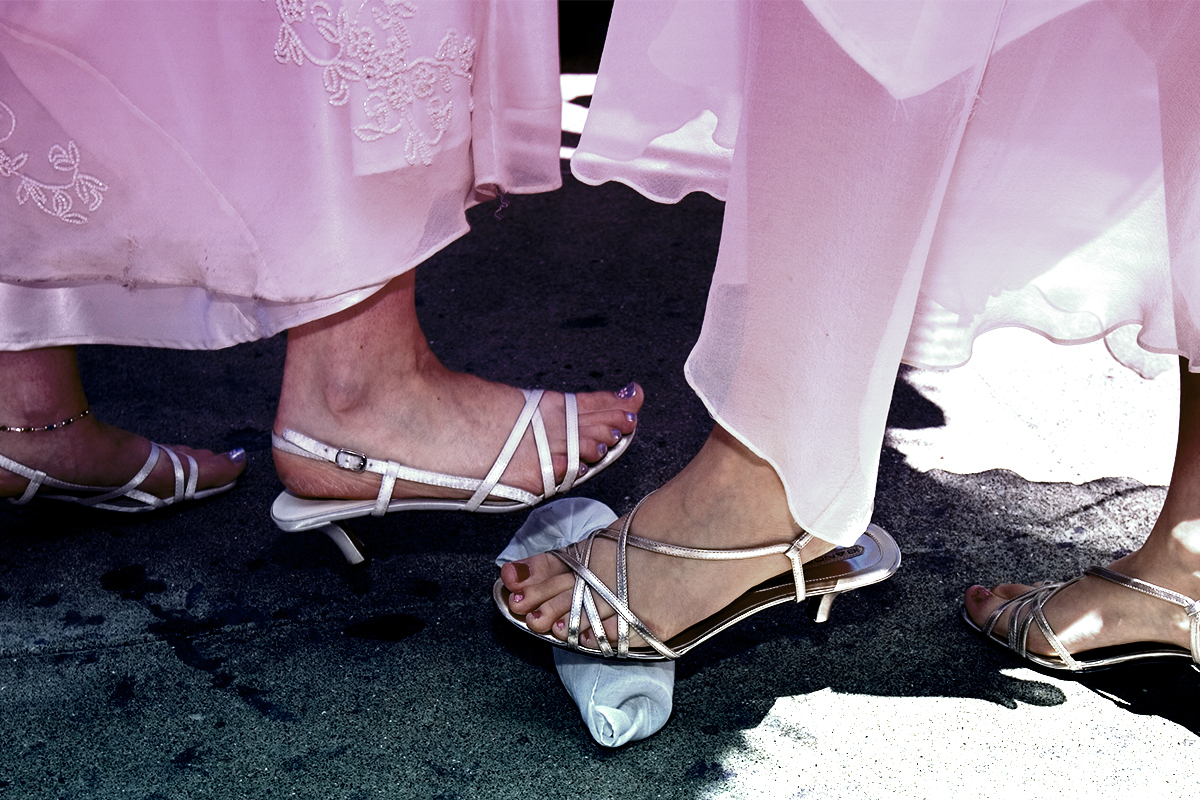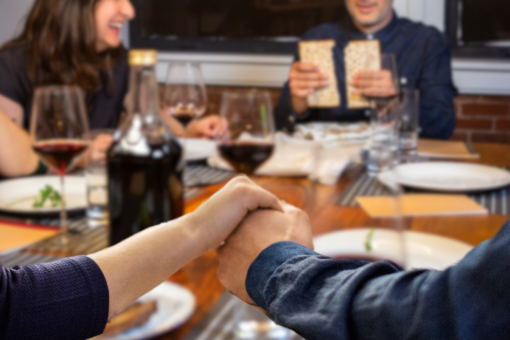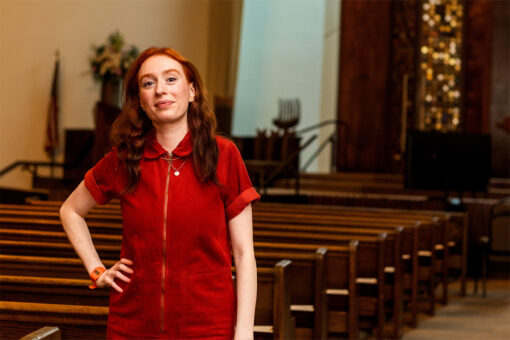When we first got together, my girlfriend and I both said emphatically that whatever happened between us wouldn’t be serious.
We were both wrong.
I knew quickly she was it for me. We talked about marriage, about kids, about the house we wanted to build out in a moshav, about how annoying we’ll be when we’re old ladies.
My (gay) mom was quietly ecstatic to hear that her daughter had fallen in love with a woman. My dad, who didn’t know in any detail about my dating history regarding women, said as long as I was happy, that he was happy.
And so, everything was perfect: I bought a ring, she said yes, and then… we realized we had to plan a wedding.
And not just any wedding, but a gay, Jew-ish wedding-but-not-a-wedding because we’re two ladies in love who happen to live in Israel.
Here, we don’t have the option of a legal wedding because here, gay marriage doesn’t exist.
Here, enormous, over-the-top weddings — the kind that boil my blood over their grandiose, show-off-ish nature — are the norm.
Here, my religious status is not recognized by the rabbinate as Jewish, thanks to my mom’s Reform conversion (so, even if I was engaged to a guy, I still wouldn’t be able to marry him!).
Sounds like a good starting point, doesn’t it?
Let me first say that before we even got engaged, we decided that our future wedding would be ours. All decisions would be made by us. I didn’t want to be taking orders from anyone about why my fourth-cousin thrice-removed needed to be invited (to be fair, my family isn’t like that, and I don’t have any fourth cousins to speak of, but still). No demands or requests from our oh-so-well-intentioned friends and family. We wanted a small, simple wedding that reflected who we are as individuals, and as a couple.
That aside, there’s a long list of things you need to consider when you’re planning a wedding, and your first thoughts will always be venues, *the dress*, and the guest list. But, as it turns out, there are about a thousand things you (and me) never realized are worth paying attention to, too.
Considering that our wedding does not exactly jive with tradition, those thousand things become a bit more complicated — it isn’t just buying a glass to break under the chuppah, it’s whether we want to do that at all. And if we do, which one of us will do it? Or will we both, each breaking our own glass? At the same time, or one after the other? You get the gist.
Veils? No. In a trend that’s becoming more common among young, progressive women (or at least my friend Sara), brides are opting out of this antiquated tradition. And anyways, I want to see my fiancée fully, not through a curtain of lacy mesh.
Kosher food? Probably yes, despite the fact that we don’t keep kosher (sorry Abba). I was raised Conservative, she was raised Russian, which is to say I don’t think she fully knew what kosher food was until I entered into her life. But with Israeli wedding venues, you don’t have much of a choice.
Will our fathers give us away? Yes and no. In Jewish weddings (at least in Israel), both parents walk the bride to the aisle, where she is greeted by her groom. But there is no groom to be found in this holy matrimony. So do we walk down the aisle together? Or do we have our parents walk us down? In that case, who goes first?
I’ve seen so many videos of grooms and brides seeing their soon-to-be-betrothed walking down the aisle, seeing them in their dresses for the first time, smiling, crying tears of happiness. I want that moment. And we’ll have it, but it just might look a bit different.
Once we get up to the chuppah is when things start to get even more complicated. Traditionally, there are seven blessings said, but because Hebrew is a gendered language, we have to tweak them slightly. But do we even want to say them, anyway, and if so, do we want to say all of them? Do they all apply to us, as a same-sex couple? (The short answer is no.)
The biggest challenge might be how to hold the wedding simultaneously in two languages. My love is Israeli, though Russian is her first language, and I am, despite my best intentions, American as f*ck. I’ll have friends and family flying over to see me get not-quite-married, and I don’t want them to spend thousands of dollars to not understand a word of what’s going on.
Besides, I want to incorporate some American traditions — like vows and toasts — yet still retain the liveliness of an Israeli simcha.
The list of these complicated questions goes on and on and on. And don’t forget the fact that we’re two young millennials, saving money simultaneously for a wedding as well as for my fiancée to go to medical school — which will ultimately require a move abroad to somewhere in Europe.
Planning a wedding is no small task for anybody, but planning something so far outside of the norm is proving to be one of the hardest things I’ve ever done.
If I was planning a gay wedding, dayenu; if it were just a regular Jewish wedding, dayenu; but add those together and then consider that I live in Israel, where I have to plan this whole shindig in a language that isn’t even my own, and you can understand why I’m freaking out just a little.
But just a little. To be honest, we aren’t doing much planning at the moment. We’ll get to it soon enough. We’ll get married next summer one way or another. For now, I’m just adding photos of DIY centerpieces to my wedding Pinterest and pretending like that’s enough.
Photo by Kimberly White/Corbis via Getty Image



